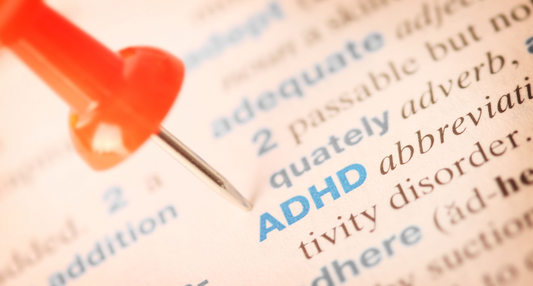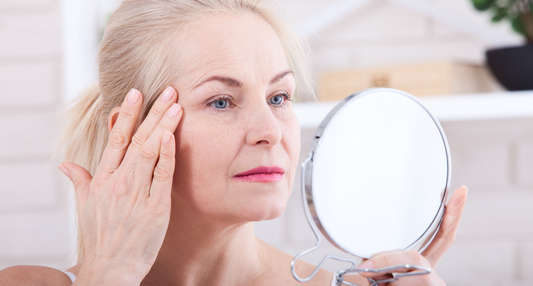The Ultimate Menopause Toolkit: An Anti-Inflammatory Approach To Managing Menopause

Share
Menopause can be a very confusing and difficult stage in life to navigate. As an OB-GYN, I give my patients a Menopause toolkit with six key strategies to reduce menopausal symptoms by creating habits that reduce inflammation. This toolkit is not a magic pill, but rather six strategies to incorporate into your lifestyle to enhance well-being and counteract menopausal symptoms.
Nutrition
This Menopause Toolkit starts with an anti-inflammatory approach to food reducing many symptoms of menopause like weight gain, bone loss, and the risk of chronic diseases such as heart disease and diabetes. An anti-inflammatory lifestyle like the Galveston Diet focuses on healthy fats, lean meats, a variety of fruits and vegetables, and whole grains. This is a foundational, but HUGE lifestyle change that can be challenging on many levels.
I created The Galveston Diet book and online digital course to provide you with the information you need to develop more confidence in your nutritional choices. With some small, intentional changes, you can start creating a happier and healthier lifestyle.
Exercise
Exercise, on top of an anti-inflammatory diet, is essential to incorporate on a regular basis. Resistance training can help you develop and maintain strong muscles, and bones, while aerobic exercise works to strengthen your cardiovascular system.
I recommend doing some sort of resistance training with weights or simple functional movements using one’s own body weight three to four times per week and participating in some form of aerobic exercise such as walking, jogging, and running to build bone density and endurance for at least 150 minutes per week.
For a well rounded movement practice, be sure to incorporate stretching and balance work into your weekly routine. Yoga or pilates style workouts can check several boxes at once, including stretching, balance and body weight exercises.
If you are new to exercise, just start walking. If you’ve been only walking for a while, pick up some weights! Move your body. Exercise to be strong, not skinny.
Pharmacology
Pharmacology refers to treatments that your healthcare provider can prescribe or recommend to reduce symptoms such as hot flashes, night sweats, bone loss, premature estrogen deficiency, and genitourinary issues like vaginal dryness and frequent urination.
Hormone Therapy (HT) has been approved by the FDA to treat conditions related to menopause, and for many, this is a great option. For those who may not be good candidates for hormone therapy, there are other medications and supplements available that can be very effective in treating your symptoms.
It is important to meet with your provider to review your wants, needs and family history, so that together, you can determine what methods and treatments are the best fit.
Stress Reduction
Stress reduction techniques can reduce many symptoms, cortisol levels and the discomfort related to menopause. Mindfulness, meditation and breathing techniques can help reduce acute stress levels over time. There are many free apps available to help you manage your stress levels including Headspace and Calm. You may also consider adding journaling, a very effective stress reducing practice, into your everyday routine.
Counseling, such as Cognitive Behavioral Therapy (CBT) can also help as it encourages you to identify and challenge normative beliefs, allowing you to set realistic expectations and adopt more functional thoughts.
Sleep Quality
The quality of your sleep is an essential component of the menopause toolbox. People with menopause report having difficulty sleeping due to night sweats, restlessness, sleep apnea, or other conditions and find it hard to stay asleep. Without 7 to 8 hours of sleep a night, cortisol levels increase and cause inflammation in the body potentially leading to lowered defenses in the immune system and an increased risk of developing many chronic conditions such as sleep apnea and insomnia. It’s important to make time and create a bedtime routine that can help you get restful sleep.
Community
Communities bring like-minded people together and gives them the chance to be inspired, solve problems, share a laugh, vent their frustrations and share their achievements. Being part of a community enables you to give support to other members which in turn, helps you to feel good about yourself. Members can learn from one another and provide encouragement and accountability, while enjoying a sense of togetherness, commonality and belonging. Forming connections with others who can relate to you can help you build your confidence and reach your goals.
As with anything else, you will get out what you put in, so be an active participant in whatever community you choose to be a part of. Chances are, someone in the community has stumbled with a similar issue and can either relate to your struggle or can provide you with some advice on how to overcome it. There’s truly nothing like belonging to a community of like-minded people to keep you focused, celebrate your wins, commiserate your struggles and lift you up when you need it most!
These six strategies support one another and produce a plan of action to help manage symptoms of perimenopause and menopause. With your Menopause Toolkit you can literally change your lifestyle and feel vibrant, energetic and excited about this stage of your life.
References
- https://www.mayoclinic.org/diseases-conditions/insomnia/expert-answers/lack-of-sleep/faq-20057757
- https://www.ncbi.nlm.nih.gov/pmc/articles/PMC3296386/#:~:text=Even%20a%20moderate%20exercise%20schedule,strength%2C%20balance%2C%20and%20coordination
- https://www.healthline.com/nutrition/menopause-diet
- https://www.nctechniquesbi.nlm.nih.gov/pmc/articles/PMC4441783/
- https://www.maturitas.org/article/S0378-5122(22)00167-0/pdf










